- The 69th SEMINCI will premiere in Spain the restored or digitised copies of nine feature films made between 1949 and 2002, as well as a non-fiction work on the director and producer Pere Portabella
- Among the feature films recovered is ‘Deprisa, deprisa’, by Carlos Saura, Golden Bear at the Berlin Festival in 1981
Valladolid, 30 September 2024. Through Memory & Utopia, the 69th edition of SEMINCI reveals, in an act of rebellion, titles that have been hidden by history. This is not always due to political censorship; but also due to economic reasons, gender discrimination, or even because of their own out-of-touch nature, beyond the prevailing canon of their time. Within this section, the recently restored or digitised copies of eight feature films, made in Mexico, United States, Portugal, Czechoslovakia, Sweden, Hong Kong e Irán entre 1949 y 2002between 1949 and 2002, will be screened for the first time in Spain. Plus, Carlos Saura‘s revisiting of the cinema quinqui in Deprisa, deprisa (1981), Golden Bear at the Berlin Festival. The section Memory & Utopia is completed by Constellation Portabella, a recent non-fiction work focusing on Pere Portabella, the producer of Viridiana, a groundbreaking and political director, a leading figure in Spanish cinema.

The 69th SEMINCI will feature two films which could form part of an alternative history of cinema but which did not fit in with the dominant images, marked by a political situation or by the mass production film industry. Although temporally and geographically separated, these films are united by a reflection on femininity which failed to match their time, at the end of the 1940s, for presenting attitudes identified with men, such as taking the sexual initiative: La negra Angustias, by Matilde Landeta, a pioneering director in Mexican cinema, and Woman Without a Face, by Gustav Molander, with a screenplay by Ingmar Bergman.
In the 1990s, African-American filmmakers Bridgett M. Davis‘ Naked Acts and Charles Burnett‘s The Annihilation of Fish also failed to find a place in the orthodoxy of independent cinema. The former was mistreated for mixing racial and sexual matters, and the latter was forgotten by distributors after a devastating review in Variety magazine. Just as they were disregarded in form and theme, Solveig Nordlund‘s Low-Flying Aircraft flouted the unwritten rules of the genre, fantastic in this case, by adapting author J.G. Ballard.
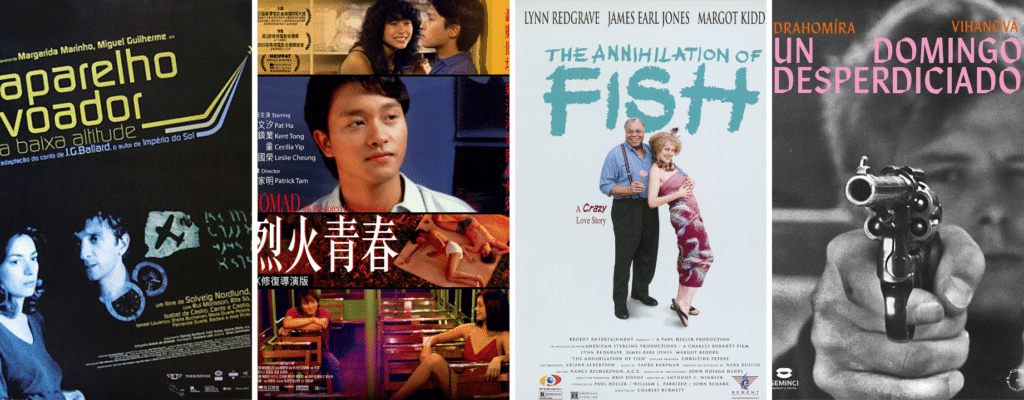
Other titles selected in Memory & Utopia demonstrate a dissonance to the national film industries from which they originate: A Wasted Sunday, director Drahomira Vihanová‘s debut, banned at the time in Czechoslovakia for reflecting the situation in the country after the Prague Spring; The Sealed Soil, debut feature by Iranian Marva Nabili, the oldest remaining full-length film directed by an Iranian woman; and Patrick Tam‘s Nomad, a classic of the Hong Kong new wave, partially censored for the frankness of its sexual language.
In short, films that disappeared from our memory, along with the truncated careers of their directors, yet are now making a comeback thanks to their restoration, so that they can not only be enjoyed, but can finally fit into the place in the history of cinema that censorship and oblivion robbed them of.


CONSTELACIÓN PORTABELLA. Claudio Zulian
Spain, 2024
Claudio Zulian (National Film Award of Catalonia for A través del Carmel), analyses the life and work of Pere Portabella, a reference in the alternative Spanish film culture of the late 20th century, through fragments of his works, his statements and interviews with critics, directors and historians. Portabella maintained that his films Nocturne 29, Vampir – Cuadecuc or The Silencie Before Bach ‘were not experimental, but different, made from another place – that they did not take into account genres or conventions, they crossed the filmic material, they opened it up to unsuspected aesthetic, literary and musical influences, they took it out of its dependence on the plot, so that other visual and aural possibilities could flourish’. Portabella Constellation is produced by Acteón and Eddie Saeta, with the support of ICEC and the participation of TV3 – Televisió de Catalunya, RTVE and Caixaforum +.
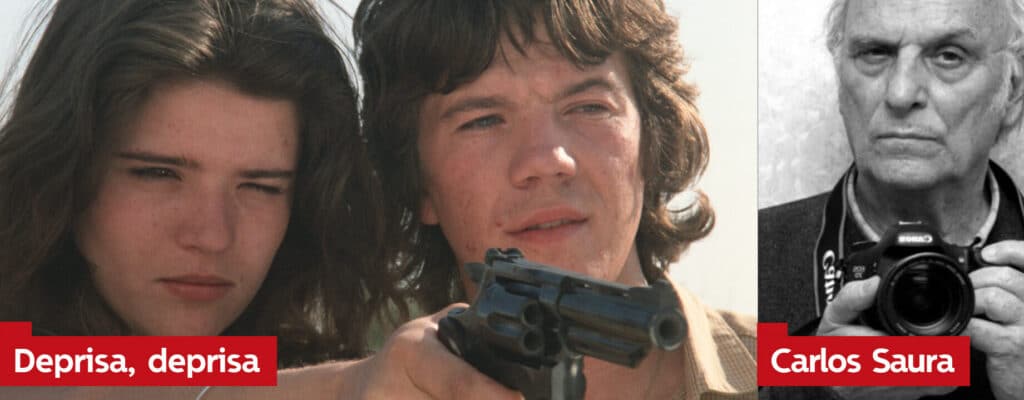
DEPRISA, DEPRISA. Carlos Saura
Spain, 1981
Carlos Saura‘s personal interpretation of the cinema ‘quinqui’, Deprisa, deprisa, has become a cult film and a film of extraordinary lyricism, without losing sight of an intention to get closer to reality. The then newcomers Berta Socuéllamos and José Antonio Valdelomar star in the story about a group of friends from a suburb of Madrid whose goal is to rob cars, first for fun, and then out of a need to feel alive. The film won the Golden Bear at the Berlin Film Festival. The 4K remastering has been carried out by the FlixOlé platform and the distributor Mercury Films. It is worth highlighting the reconstruction of the original audio, which includes music by Paco de Lucía and Los Chunguitos.
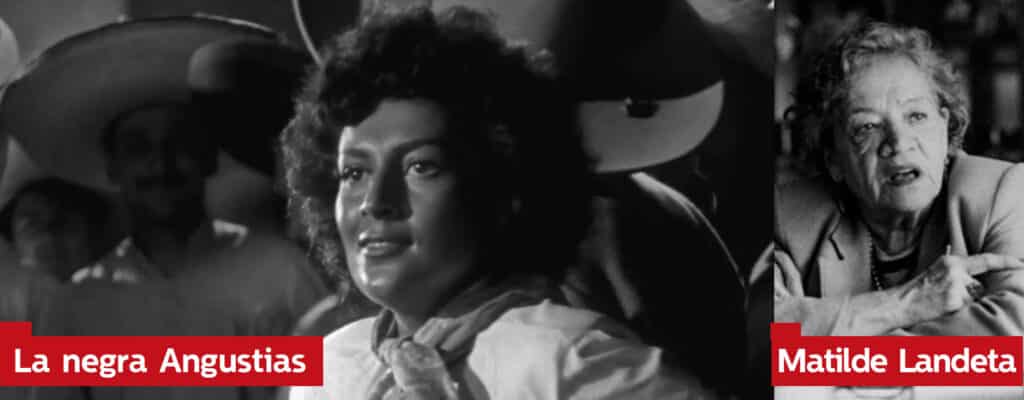
LA NEGRA ANGUSTIAS. Matilde Landeta
Mexico, 1949
Film based on a novel by Francisco Rojas González, set in the Mexican Revolution of 1910. The main character, a black woman named Angustias, decides to fight as a colonel in the Zapatista army to defend the rights of the poor and seek justice for abused women. Its director, Matilde Landeta, made several controversial decisions: from selecting a white actress to play the protagonist to exaggerating the typically Mexican melodrama. These decisions, coupled with the fact that the plot is about a woman who does not conform to the prevailing social order, prevented one of Mexico’s first female directors from being associated with the ‘golden age’ of Mexican cinema to which she belonged.
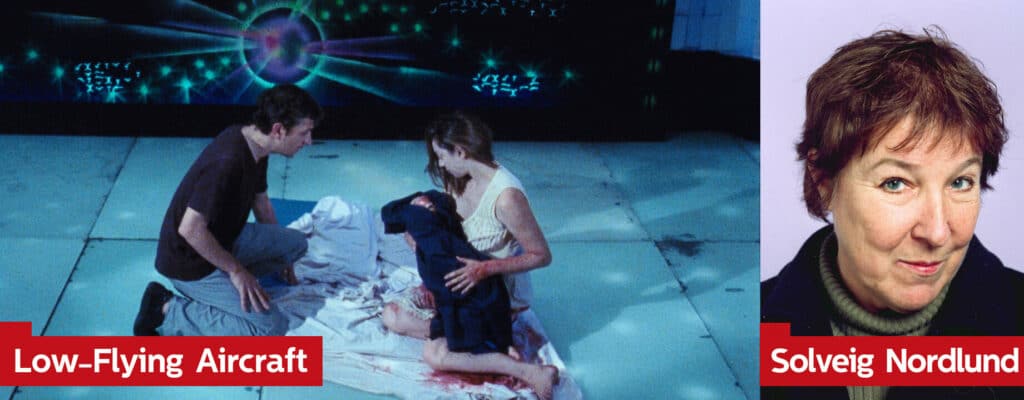
LOW-FLYING AIRCRAFT. Solveig Nordlund
Portugal, Sweden, 2002
Based on a short story by J.G. Ballard (Crash, Empire of the Sun), Low-Flying Aircraft is one of the few examples of science-fiction cinema in Portuguese cinema, about an endangered humanity in the face of the increasing births of mutant babies, who are sacrificed before or after birth. Swedish director Solveig Nordlund opted for a filmic approach closer to Godard than to Lynch or Cronenberg, making it a genre film outside the codes of its genre, somewhere between undefined and authorial. Life, death, totalitarianism and the search for hope are at the heart of this cult film by a filmmaker whose relevance at the beginning of the century was relegated to the margins.

NAKED ACTS. Bridgett M. Davies
United States, 1995
The only film written and directed by writer and journalist Bridgett M. Davis is a modest independent production somewhere between comedy and drama, outside the canons of American indie cinema. In it, the daughter of a former blaxploitation star is torn between doubts when she is asked to strip for her first film. The film has been restored and remastered by Lightbox Film Center at Philadelphia University of Arts in collaboration with Milestone Film.
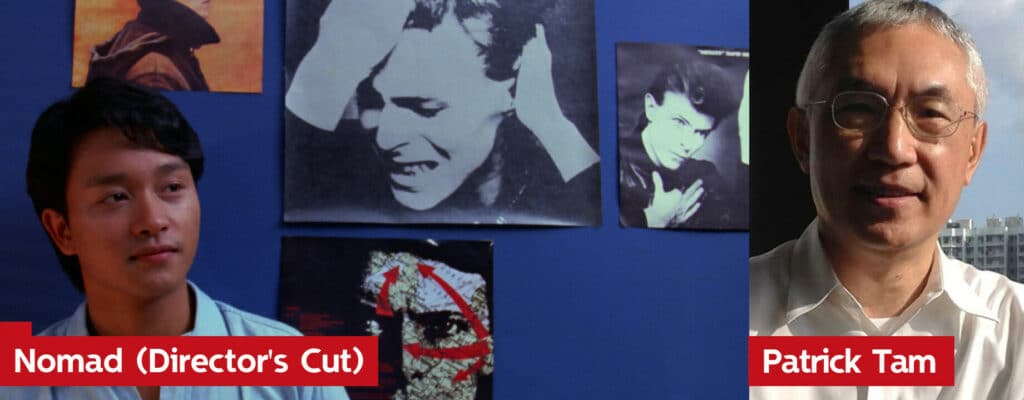
NOMAD (Director’s Cut). Patrick Tam
Hong Kong, 1982
Nomad, by Patrick Tam, could not be seen in its entirety until this year. Tam, a representative of Hong Kong new wave cinema, also makes free use of form to tell the choral story of a group of young people, focusing on the taboo of sexual awakening and love relationships. Starring Leslie Cheung, one of the most recognisable faces of Wong Kar-Wai’s films, Nomad is presented today with a new montage revised by Patrick Tam himself, which incorporates images removed at the time due to the heavy censorship that mainly targeted the explicit sexual content
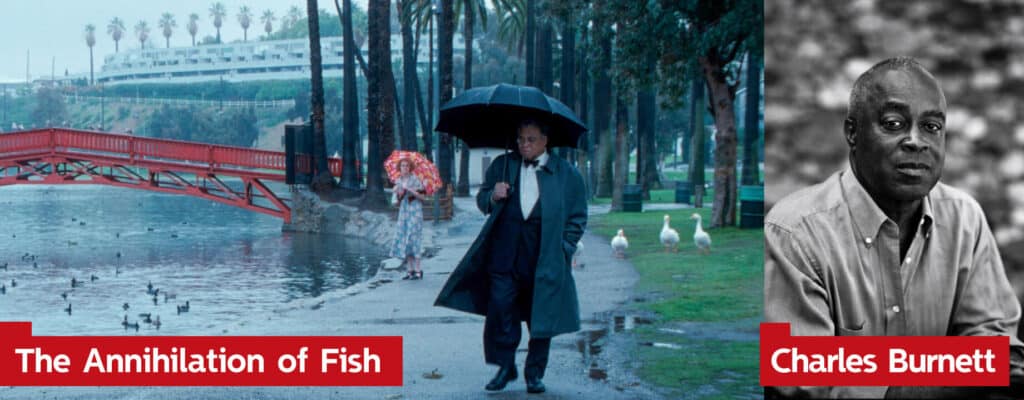
THE ANNIHILATION OF FISH. Charles Burnett
United States, 1999
Directed by the prestigious representative of African-American cinema Charles Burnett (Killer of Sheep), still an active filmmaker, The Annihilation of Fish suffered the disinterest of distributors after its screening at the Toronto Film Festival and was destroyed by a review in Variety, in spite of having well-known actors such as Lynn Redgrave, James Earl Jones and Margot Kidder (Superman) in its favour. An interracial love story starring a trio of eccentric characters, all with psychiatric problems, who meet in a guesthouse.
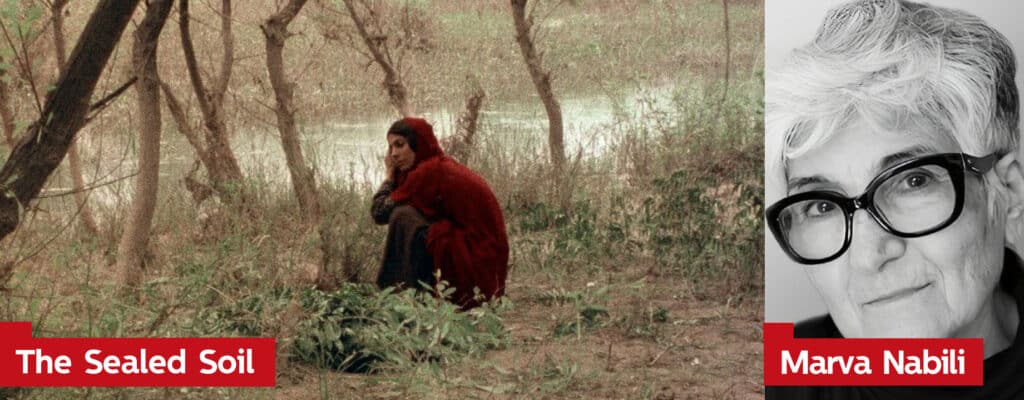
THE SEALED SOIL. Marva Nabili
Iran, 1977
The first surviving full-length feature film directed by an Iranian woman, The Sealed Soil subtly explores the subjugation and resistance of women in Iran. The story, reminiscent of another feature film included in this 69th edition but shot 50 years later, tells the story of how a rural community in the pre-Khomeini era portrays a young woman’s rejection of all her suitors when she reaches marriageable age as demonic possession. The film was forgotten after its run at the Berlin Film Festival, and Marva Nabili only directed two more films after this one, once out of her country. After almost fifty years, the film is back on the big screen thanks to digital restoration (from the original 16mm negatives) by the UCLA Film and Television Archive.
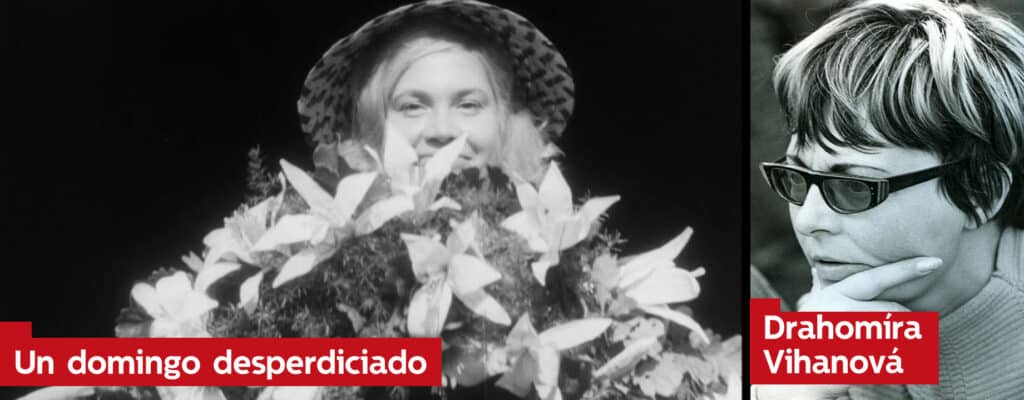
UN DOMINGO DESPERDICIADO / A SQUANDERED SUNDAY. Drahomíra Vihanová
Czechoslovakia,1969
Banned at the time by the communist regime in Czechoslovakia, A Squandered Sunday casts a distorted view of life in Czechoslovakia after the Prague Spring through the depiction of a day in the life of a young soldier. Gathering the theoretical framework of an unrepeatable generation of Czechoslovak cinema, through avant-garde editing techniques and a deep-seated social analysis and satire, the absence of Drahomíra Vihanová‘s film left a gap in the Czechoslovak new wave and in European cinema.
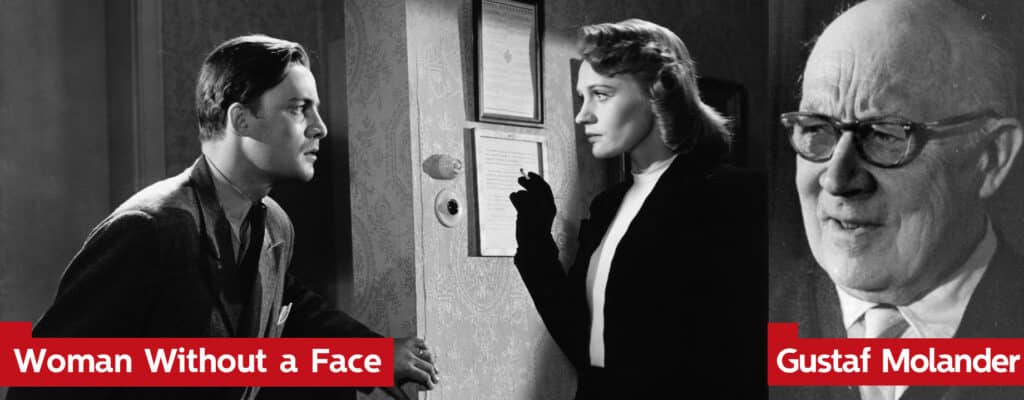
WOMAN WITHOUT A FACE / KVINNA UTAN ANSIKTE. Gustaf Molander
Sweden, 1947
Gustaf Molander worked in the Swedish film industry for five decades, making more than 60 films in his career. In Woman without a Face, Gustaf Molander visually distorts the melodrama genre by using flashbacks and altered points of view, whilst Ingmar Bergman‘s screenplay outlines thematic transgressions that herald later Swedish cinema. Plot-wise, this World War II noir about a love triangle breaks from conventional wisdom with a woman (played by Gunn Wällgren) who takes the initiative in the sexual arena. A piece co-written with the acclaimed director of Persona and The Seventh Seal, Woman Without a Face, is an essential work of Swedish cinema, and its release vindicates a fundamental figure who for years was kept in the shadows.
Press contact:
983 42 64 60



























![Logo Foro Cultural de Austria Madrid[1]](https://www.seminci.com/wp-content/uploads/2024/09/Logo-Foro-Cultural-de-Austria-Madrid1-300x76.jpg)








